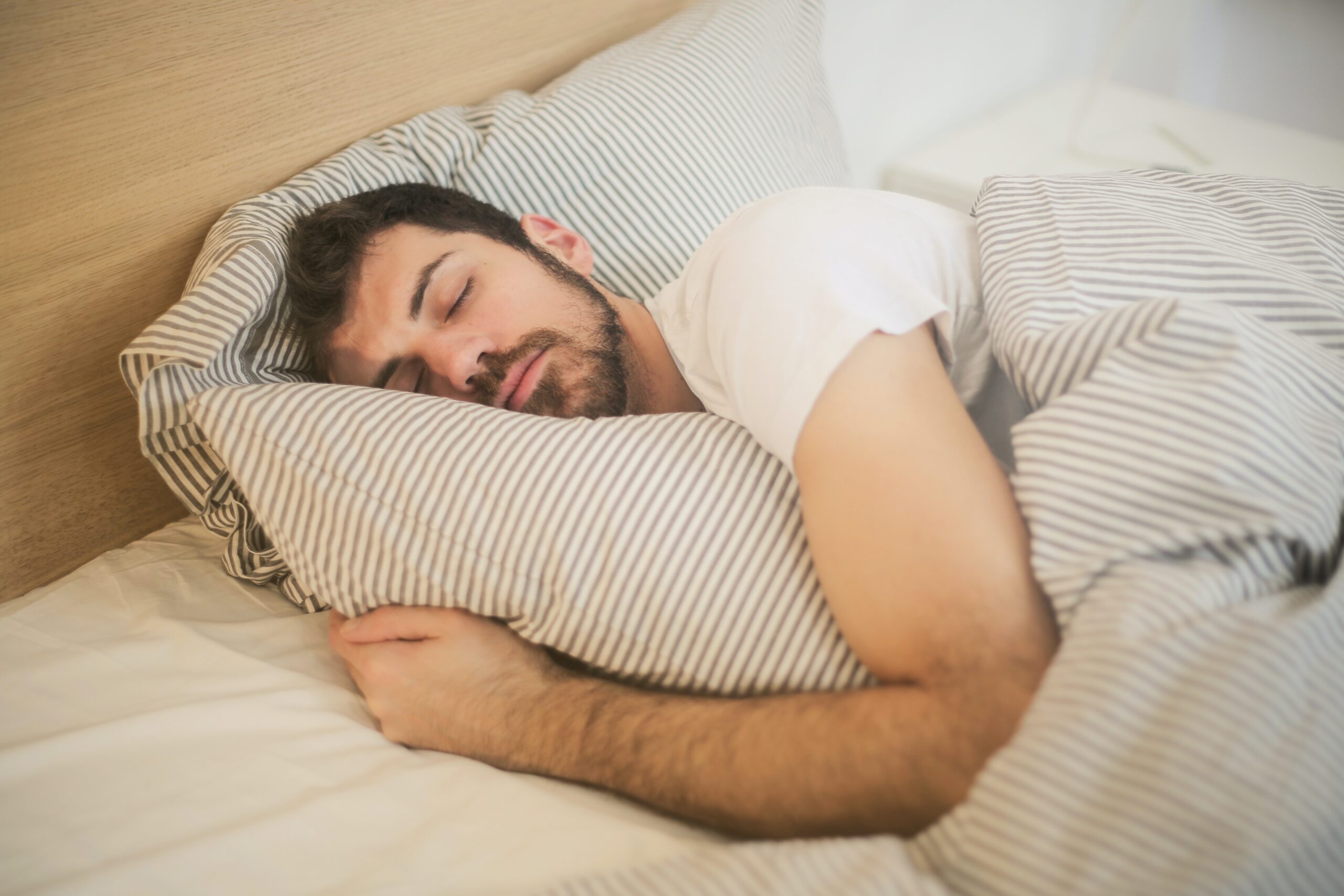Why is it important to sleep better/well?
Here we will discuss how to sleep better and faster ? before this, we need to know why it is important to sleep better.
It’s crucial to get enough good sleep for overall well-being and health. Our bodies can heal and repair themselves while we sleep well, making us feel more energized and fresh when we awaken. The health of our immune system, metabolism, and brain depends heavily on sleep. We may face negative impacts on our mood, cognitive function, and physical health if we don’t get enough sleep. Given the numerous advantages of getting enough sleep, it’s critical to prioritize good sleep habits and establish a setting that promotes restful sleep.
WHAT TO EAT TO SLEEP BETTER?
Do you have trouble falling asleep at night? If so, you are not by yourself. Many sleep-related issues affect millions of individuals globally. Thankfully, you don’t need to use medicine to get better sleep. We’ll discuss 10 foods in this article that naturally promote restful sleep.
1. Kiwi
Kiwi is a sweet fruit that has a lot of antioxidants and serotonin, making it a wonderful option for enhancing sleep. A hormone called serotonin helps control your sleep-wake cycle, and antioxidants shield your body from oxidative stress, which can lead to restless sleep.

2. Tart Cherry Juice
Tart cherry juice contains melatonin, a hormone that regulates sleep. Drinking tart cherry juice before sleep time can greatly boost sleep quality and duration, particularly in people who suffer from insomnia.
 3. Almonds
3. Almonds
Almonds contain magnesium, a mineral that helps relax muscles and is soothing. Almonds also contain protein, which can help to maintain blood sugar levels and promote restful sleep.

4. Chamomile Tea
Chamomile tea, a herbal beverage, has been used as a home remedy for insomnia since its olden history. Propolis is an antioxidant that aids in relaxation and sleep.
5. Hot Milk
A traditional treatment for enhancing sleep quality is warm milk. Milk includes tryptophan, an amino acid that is transformed into the sleep-inducing chemicals melatonin and serotonin.
6. Bananas
Potassium, a mineral that assists in muscular relaxation and encourages calm, is present in bananas in significant amounts. Furthermore, tryptophan, an amino acid found in bananas, is transformed into the neurotransmitters serotonin and melatonin.
7. Walnuts
Melatonin and magnesium, two nutrients necessary for aiding sound sleep, are found in walnuts in good amounts. Walnuts also include protein and good fats, which can help control blood sugar levels and encourage sound sleep.
8. Valerian Root
People have used valerian root, a natural anesthetic, to induce relaxation and improve the quality of their sleep since ancient times. It is available as a tea or as a supplement.
9. Oatmeal
Complex carbohydrates, such as those discovered in oatmeal, can help regulate blood sugar levels and promote good sleep. Oatmeal also contains tryptophan and melatonin, which help with sleep and relaxation.
10. Dark Chocolate
Flavonoids, a type of antioxidant located in dark chocolate, promote relaxation and sleepiness. Dark chocolate as well contains magnesium and tryptophan, two nutrients that are necessary for good sleep.
ProTips for sleep better:
Here are some pro tips that also help to sleep better and faster:
Imagine your next morning:
Imagining the following day can help us sleep faster by calming our minds and reducing the racing thoughts that keep us awake. When we lie in bed trying to sleep, our minds can become preoccupied with worries, anxieties, and to-do lists, making it difficult to relax and fall asleep.
We can, however, create a mental picture of a peaceful and organized day if we take a few minutes before bed to imagine what the next morning will look like. This visualization can help us feel more in control and prepared for the day ahead, which can reduce stress and anxiety.
Additionally, imagining the next morning can help us focus on positive outcomes and create a sense of optimism about the day ahead. This positive mindset can help us feel more relaxed and content, making it easier to fall asleep and sleep better.
Wash your face with cold water:
Washing your face with cold water can help you sleep faster and sleep better because it lowers your body temperature, which is necessary for sleeping.
Our body temperature naturally drops when we sleep, signaling to our bodies that it is time to rest. You can speed up this process and help your body prepare for sleep by washing your face with cold water.
Do the lying butterfly pose:
The lying butterfly pose, also known as the reclined bound angle pose, promotes relaxation, reduces tension, and improves blood circulation, which can help us sleep better.
To do the lying butterfly pose, lie on your back and bring your foot soles together, allowing your knees to fall out to the sides. If necessary, use pillows or blankets to support your knees. Hold this position for a few minutes, concentrating on deep breathing and relaxation.
Listen to the Binaural beats:
Binaural beats can help us sleep faster by promoting relaxation, reducing anxiety and stress, and trying to instill calmness in the body and mind.
Binaural beats are sound frequencies that are played in each ear at slightly various frequencies, causing a pulsing effect in the brain that can promote relaxation and calmness. This can help to relieve stress and anxiety while also preparing the body and mind for sleep.
NOTE: It’s not recommended for small children.
Remember your day in reverse:
Remembering your day backward can help you sleep better by releasing any lingering thoughts or worries from the day, promoting relaxation, and improving sleep quality.
To remember your day in reverse, begin by recalling the last thing you did before going to bed, and then work your way backward through your day, recalling each event in reverse order. This exercise can help you mentally process your day, releasing any stress or anxiety from the day and preparing your mind for sleep.
Stick to one routine:
Sticking to one routine can improve sleep by regulating the body’s natural sleep-wake cycle, reducing stress and anxiety, and promoting relaxation.
Our bodies have a natural internal clock, or circadian rhythm, that regulates our sleep-wake cycle. When we maintain a consistent routine for waking up and going to bed, our bodies can adjust to this schedule and optimize our sleep quality.
Take a Warm bath before bed:
By promoting relaxation, reducing stress and anxiety, and regulating body temperature, taking a warm bath before bed can help you sleep better.
Overall, taking a warm bath before bed can help promote relaxation, reduce stress and anxiety, and regulate body temperature, all of which can contribute to better sleep quality.
Important Note:
It’s also important to note that the timing of exercise can have an impact on sleep quality. Exercising too close to bedtime can actually make falling asleep more difficult because it raises alertness and body temperature. As a result, it’s best to finish exercising at least a few hours before bedtime to sleep better.
Worst sleep habits which should avoid:
A good night’s sleep is critical for overall health and well-being, but many of us have developed bad sleeping habits that can impair our sleep quality. We’ll look at some of the worst sleeping habits and how they affect our sleep in this blog.
Irregular Sleep Schedule
An irregular sleep schedule, such as staying up late on weekends or taking frequent naps during the day, can disrupt the body’s natural circadian rhythm and we cannot sleep better at night. This can make it more difficult to fall asleep at night and lead to daytime sleepiness and fatigue
Consuming Caffeine and Alcohol Before Bedtime:
Drinking caffeinated beverages or alcohol before bedtime can interfere with sleep quality. Caffeine is a stimulant that can make it more difficult to fall asleep, while alcohol can disrupt the natural sleep cycle, leading to more frequent waking during the night.
Sleeping in an Uncomfortable Environment:
Sleeping in an uncomfortable environment, such as a hot or cold room, or a bed that is too hard or too soft can disrupt sleep quality. It is critical to creating a sleep environment that promotes relaxation and restful sleep.
Using Sleeping Pills on a Regular Basis:
Regular use of sleeping pills can lead to dependence and tolerance, making it more difficult to fall asleep naturally. Before taking sleeping pills, consult with your doctor and look into other options for improving your sleep quality. Because it is very important for us to sleep better but naturally not by taking medications.
FAQS:
Are sleeping habits inherited?
Sleeping better is very important for all of us. While genetic factors can influence sleep habits, they do not entirely determine them. Genetics may play a role in determining individual sleep needs, such as whether someone is a "morning person" or a "night owl," as well as their natural sleep-wake cycle or circadian rhythm, according to research.
How sleeping habits affect academic performance?
According to research, good sleeping habits improve academic performance. According to studies, children who get enough sleep perform better academically, have better concentration, are more alert, and make better decisions.
Can sleeping habits influence weight?
Yes, poor sleeping habits can contribute to weight gain. Obesity is more likely in people who do not get enough sleep, according to studies. Due to an imbalance in hormones that regulate hunger and satiety, a lack of sleep can cause increased hunger and cravings.
Does what I eat affects the quality of my sleep?
Yes, what you eat can have an impact on your sleep quality. A well-balanced diet rich in magnesium and tryptophan, such as nuts, seeds, whole grains, and lean protein, can aid in relaxation and improve sleep quality and you can sleep better.
Can listen to music helps me fall asleep more quickly?
Yes, listening to soothing music or white noise can aid in relaxation and stress reduction, making it easier to fall asleep faster and sleep better.
Conclusion:
To summarise, developing healthy sleeping habits which help us to sleep better is critical for maintaining physical health and mental health. We can improve the quality and quantity of our sleep by establishing a consistent sleep schedule, avoiding stimulating activities before bedtime, and creating a comfortable sleep environment. Developing a healthy diet and exercise routine can also help promote restful sleep. We can reap the many benefits of restful, rejuvenating sleep by prioritizing good sleep habits and making them a regular part of our daily routine, including improved mood, increased productivity, and overall health and well-being. Remember that small changes can make a big difference in promoting healthy sleep habits, so begin incorporating these habits into your daily routine today!
Photo by Andrea Piacquadio on Pexels

